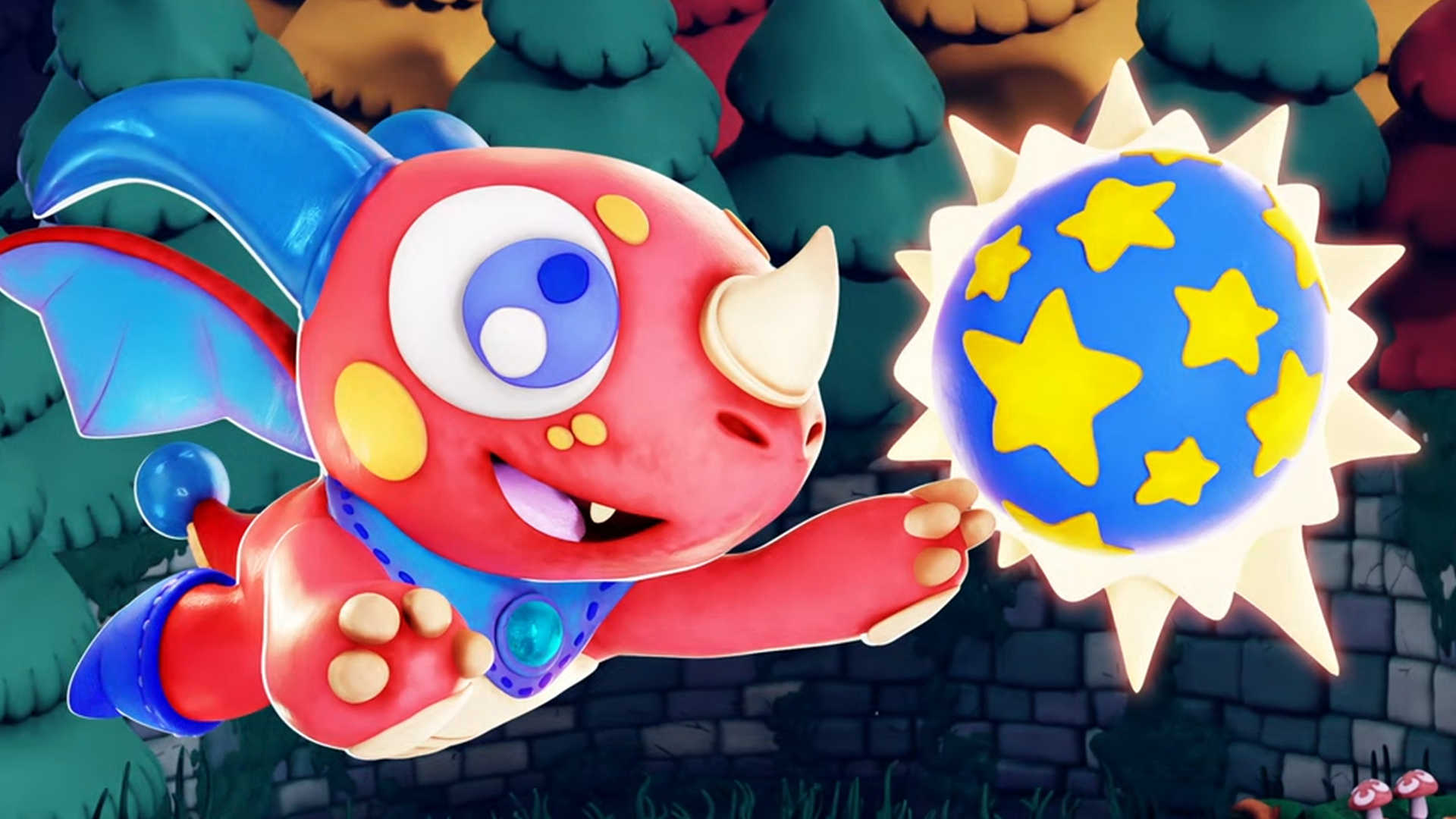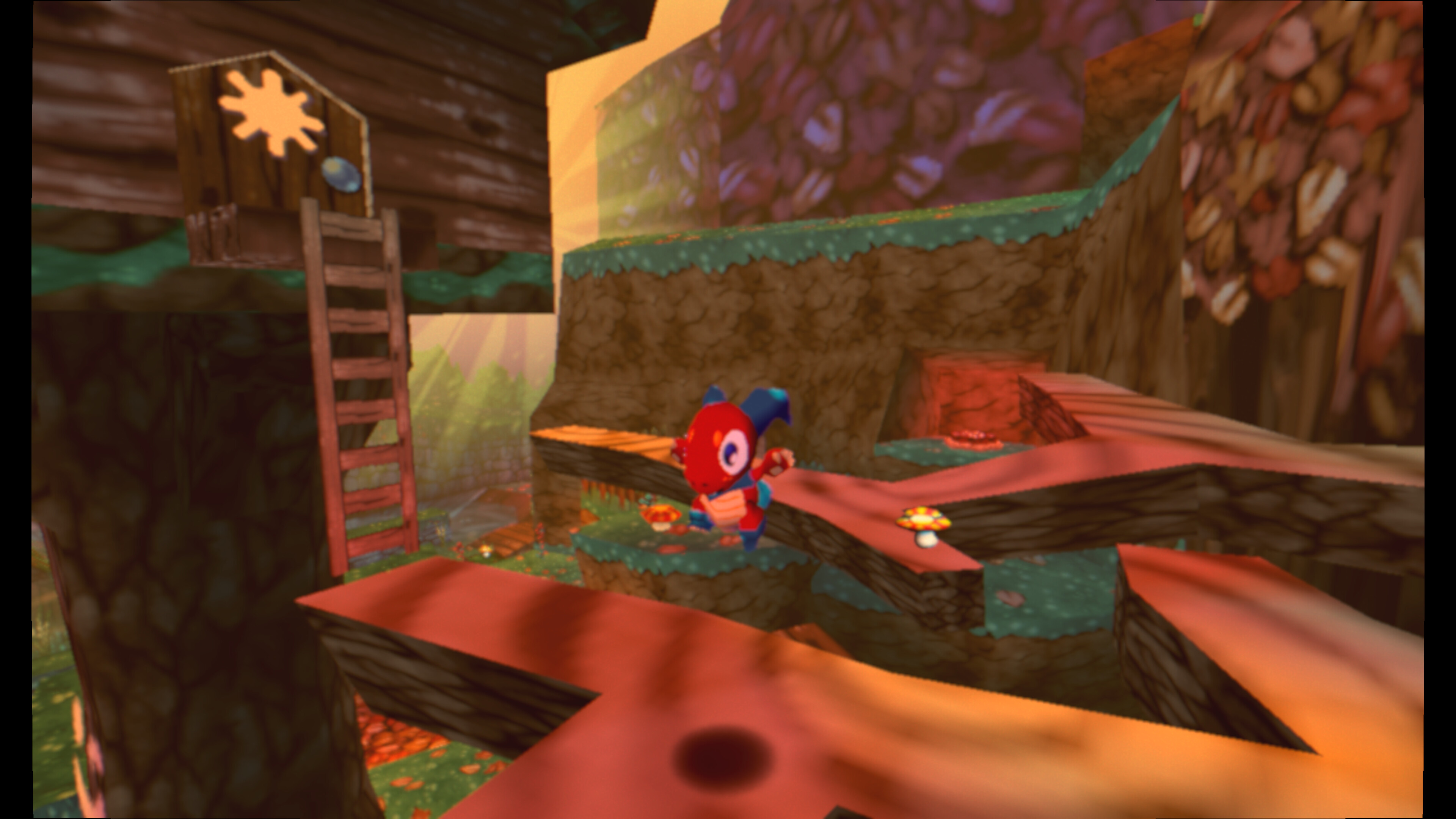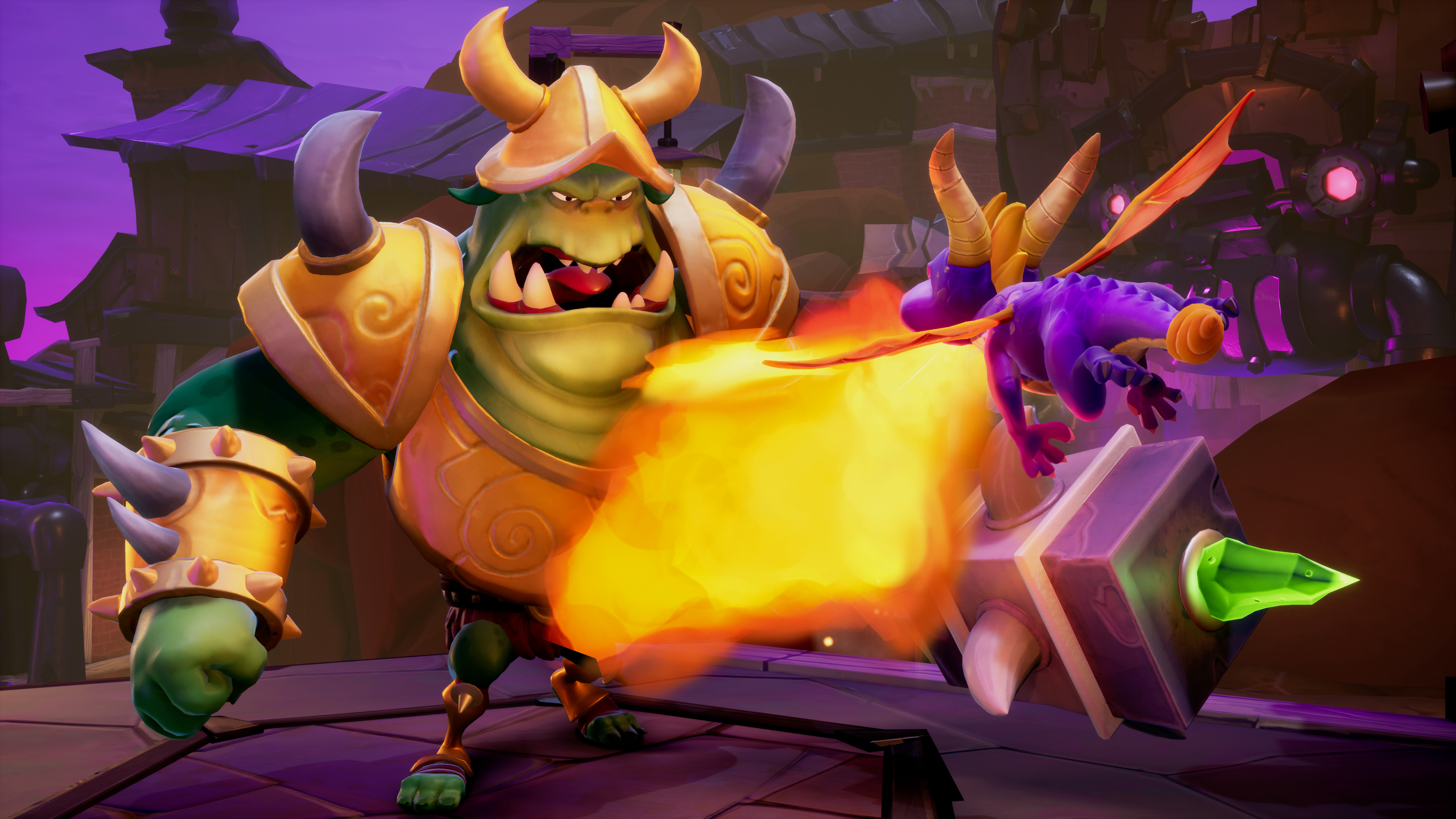The Spyro and Banjo-Kazooie successor with 'Overwhelmingly Positive' reviews is a solo project inspired by family: "My dad and sister would always sit round the N64 together"
Interview | In conversation with the creator of Super Rare Games and Bynine's Cavern of Dreams

There's something oddly hypnotic about playing a video game built in 2023 that so closely echoes a bygone era. We've hardly been short of retro throwbacks over the last decade or so, particularly in the indie space, but Cavern of Dreams is so meticulous in its deference to Spyro the Dragon and Banjo-Kazooie that it plays like a remaster, not a spiritual successor as intended. Textures occasionally blur, pop-in can occur when pressed against its boundaries, and its sound effects are often labored. All of this is intentional, by the way. And it's pretty damn impressive.
For solo developer Tyler McMaster, the decision to lean into a generation now pushing 30 years old was an easy one – driven by both nostalgia and pragmatism. "That's what I value in older games: simpler assets, simpler graphics, games made by small and passionate teams," says McMaster. "In modern 3D games, if you have realistic graphics, any interaction between two characters that feels wonky will feel ten times more wonky with two realistic humanoid characters versus a little cartoon Dragon."
"You're not going to notice the little cartoon dragon clipping into a wall a little bit or interacting in a slightly weird way. But we're so hardwired to recognize slight weirdnesses in reality, that games that try to be realistic are required to do a lot more work just to get the same results. I was able to create Cavern of Dreams with this in mind, making all the assets myself. And I was, of course, inspired by my formative years."
Run and jump


As Spyro the Dragon turns 25, we remember what made the purple platformer such a fierce fire starter
The inspiration McMaster mentions stems directly from the flagship console platformers of the mid-to-late 1990s. His earliest memories of video games, in fact, involve watching his father and older sister playing Banjo-Kazooie on the N64, and being blown away by how immersive these 32-bit undertakings felt at the time. From their crude interpretations of dripping wet caves to foggy white chasms, McMaster found himself enchanted by these virtual spaces; eventually filling notebooks with his own homemade sketches and ideas as he got older.
Reluctant to actually turn his primitive designs into living and moving games, McMaster took guidance from his software engineer father, before trying his own hand at programming and falling in love with the process. "I took my dad's advice, and I loved it," he says. "And that was kind of the final step I needed. From there, I just made games like crazy."
In 2017, A Night Alone marked McMaster's first proper solo venture, a Gameboy Color-style horror platformer, before cozy top-down adventure game Forest's Secret landed the following year. In 2020, McMaster made Pocketman Third D, a surreal 3D monster tamer game that stood a parody of the myriad Pokemon knock-offs of the late '90s; before Cavern of Dreams dropped on Steam on October 19, 2023. McMaster admits his entire family have been very supportive of his work – not least his older sister, who's offered a consistent stream of helpful feedback along the way.
"My older sister, the same person I played Banjo with all those years ago, helped me a lot when developing Cavern of Dreams," McMaster says. "She suggested ideas on all sorts of stuff, and we have a good rapport and I'm very lucky that she was able to help me. Ultimately, my advice is: if you are in a position where you have anyone you can reach out to just to play what you are making, then solo development becomes a lot easier."
All the time

"We are 25 years out from these games. And guess what, if you were a little kid when you first played them, you're now 25 years older"
Speaking very personally, one thing I love about Cavern of Dreams – and indeed McMaster's wider portfolio of work – is what it's doing for video game preservation. As access to games barely a quarter of a century old becomes increasingly difficult, games like this one serve to preserve the mood and feel of a long-forgotten era, warts and all, which speaks to me as a 37-year-old player. Both Banjo-Kazooie and Spyro the Dragon are (somehow) 25 years old, and yet playing Cavern of Dreams today is like stepping back in time.
Sign up to the GamesRadar+ Newsletter
Weekly digests, tales from the communities you love, and more
For McMaster, tapping into that appeal is framed by time itself. "So, we are 25 years out from these games. And guess what, if you were a little kid when you first played them, you're now 25 years older," he says. "A decade ago, we had games like Shovel Knight that were heavily inspired by the NES era. People who grew up during these games, as adults, are often fondly remembering those days."
"If you're a game developer, you're of the age now where you can make them. And if you're not a game developer, but you still fondly remember these games, you're of the age where you have your own capital, spending money, your own wants and needs. I don't love everything about older games, but I do love passionate people making things they're passionate about. Some of the most famous games of those eras were made by one to 10 people… and while I was keen for Cavern of Dreams to speak to players [seeking] nostalgia, I also made sure the game is still approachable for people who've never played a platformer before."
So whether you're a nostalgia nut seeking old school 3D platforming from yesteryear, or someone keen to see what all the fuss was about way back when, I reckon Cavern of Dreams is worth taking for a run (and jump) on Steam.
Need more blasts from the past? Check out our list of the best PS1 games of all time

Joe Donnelly is a sports editor from Glasgow and former features editor at GamesRadar+. A mental health advocate, Joe has written about video games and mental health for The Guardian, New Statesman, VICE, PC Gamer and many more, and believes the interactive nature of video games makes them uniquely placed to educate and inform. His book Checkpoint considers the complex intersections of video games and mental health, and was shortlisted for Scotland's National Book of the Year for non-fiction in 2021. As familiar with the streets of Los Santos as he is the west of Scotland, Joe can often be found living his best and worst lives in GTA Online and its PC role-playing scene.


